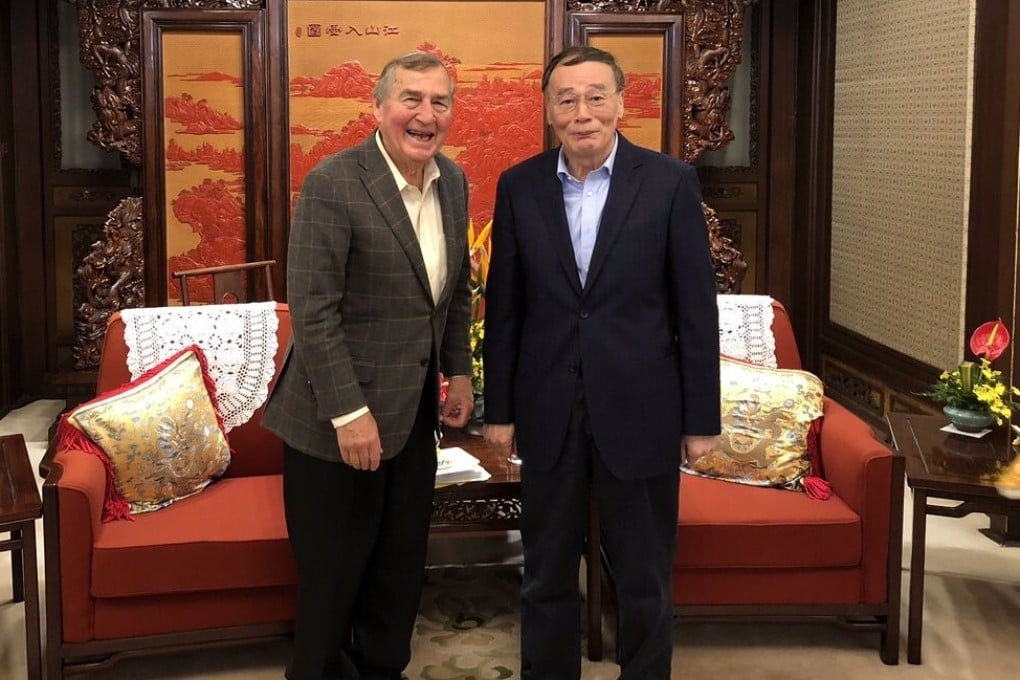US-China relations: rivalry in early stage and will only get ‘fiercer’, Harvard professor Graham Allison says
- China and the US have been locked in a trade war for over two years, with relations have been further soured over Hong Kong, Xinjiang and the South China Sea
- Graham Allison wrote ‘Destined for War: Can America and China Escape Thucydides’ Trap?’ and is the Douglas Dillon professor of government at Harvard Kennedy School

China’s rivalry with the United States has only just started, and is only likely to get fiercer down the road regardless of who occupies the White House, said Harvard professor and author Graham Allison on Wednesday.
“There has been a rolling wake up in the US to the fact that China really has emerged as a rival in virtually every dimension,” Allison told the Credit Suisse investor conference.
“[China] is ahead of the US in the economy, technology and military space. I would say we are in the early stages of a competition which will get fiercer and fiercer in rivalry.”
Allison, who wrote Destined for War: Can America and China Escape Thucydides’ Trap?, a book that explores the idea that when a rising power challenges an established one, it is likely to end up in military conflict.
I said to Liu He, this is an easy problem for you guys to fix. Why don’t you just tell [Trump], we’ll eliminate the bilateral trade deficit
The 80-year-old American has also been involved in US defence policy since working as an adviser to the Pentagon in the 1960s, while he is known as a frequent guest of top Chinese politicians, including Vice-President Wang Qishan and Vice-Premier Liu He.